As a growing restaurant group, you want to systemize your operations so that you can scale and grow quickly. Yet, you still need agility in purchasing because you’re in a fast-paced industry, and anything can come up last minute. As a result, you have most likely issued corporate cards to your key employees. Corporate credit and debit cards are linked directly to the company’s credit card and bank accounts and serve as modern-day petty cash. For example, the kitchen is short on bananas, so a line cook grabs the corporate card from the GM and runs across the street to a grocery store. Perhaps the executive chef, GM, owner, catering manager, and pastry chef have their cards tied to the business’s account. Corporate cards are convenient but are extremely high risk if they’re issued directly to employees. They must be monitored proactively to ensure all purchases are authorized and have proper documentation, which is a cumbersome process, and requesting receipts from restaurant workers is like pulling teeth. Corporate cards also encourage excessive spending because of the psychological effects of spending “someone else’s” money with an unlimited tab. In this article, we’ll discuss two alternatives to corporate cards that can be implemented in your restaurant group, allowing you to grow and scale with the proper internal controls.
Accountable Expense Reimbursement Plan
A practical alternative to corporate cards is an IRS-compliant, accountable expense reimbursement plan (aka accountable plan). An accountable plan is a method for reimbursing employees for purchases they have made on behalf of the business so that the reimbursement is not taxable to the employee but is deductible by the employer.
The accountable plan must require employees to submit reimbursement requests using an app or a reimbursement request form and provide documentation for their purchases.
The advantages of an accountable plan are:
- Employees earn points on their credit cards and get reimbursed before their credit card bill is due
- It keeps costs low because they spend less when it’s on their cards, so they will only buy things that are 100% necessary and
- Unauthorized purchases are unlikely because the reimbursement request must explain every purchase before the reimbursement is issued.
An accountable plan may be disadvantageous or impractical if:
- Employees don’t have credit cards or the necessary credit to make certain purchases on their cards
- Employee reimbursement requests are often delayed and not submitted within certain days after the purchase, skewing your financial reporting and keeping you in the dark about your restaurant’s performance.
- The business will not receive points or rewards for purchases.

Purchasing Cards (P-Cards)
Although p-cards are not as secure and controllable as an accountable plan, they are a viable alternative if an accountable plan is impractical.
You can think of p-cards as business credit cards or corporate cards that are paid from the company’s checking account and linked to its credit. However, they offer the following controls that most corporate cards don’t provide:
- Monthly and daily spending limits
- Vendor spending restrictions and limits
- Digitized receipt matching
- Accounting system integrations
- Easy-to-use dashboard allowing immediate control over the cards
- Issue p-cards immediately
- Real-time spending visibility
For example, assume your Sous Chef, Anna, spends around $200 daily at a local ethnic grocery store purchasing items not provided by the broad-line distributors. You can set a $200 daily spending limit restricted to that specific grocery store on Anna’s P-card. She will be unable to use the card for other purchases. The P-card platform will require Anna to upload a receipt for her purchase with an explanation and choose which accounting system account it should be classified (you can also limit which accounting accounts the employee can choose). If all three of these requirements are not fulfilled, the designated approver (usually management or corporate) will receive a notification to investigate the transaction. This process doesn’t necessarily avoid unauthorized payments, fraud, or chasing receipts but drastically reduces them.
P-card platforms, like Ramp, can significantly streamline accounting because they automatically sync the transactions with the accounting system with the proper account coding and documentation.
Internal Controls
Whether you implement an accountable plan or P-cards, these are the three internal controls that you must enforce:
-
- Require level 3 data for receipts (level 3 data are line item details about a purchase, including items, quantities, and descriptions).
- A description of who was present during the meal is required for meal receipts. You can spot-check this detail; employees don’t need to know you’re spot-checking.
- Add an offboarding process for departing employees:
- Cancel the card with the bank and request the card back
- Use a system that allows for immediate disconnection
- Crosscheck your active employee list with cardholder lists during your weekly accounts payable process
Managing Card Spending with the Proper Internal Controls
Corporate cards are easy to set up and issue to employees, but in the long run, they are time-consuming to manage because you’ll find yourself chasing down employees and fetching receipts. Otherwise, they sacrifice internal controls. An accountable plan and P-cards are a scalable and secure solution to corporate cards. Working with an accountant and advisor who understands your pain points and can offer the appropriate solutions is essential. Please contact us if you’re interested in a scalable accounting solution for your restaurant group that follows the proper internal controls.







